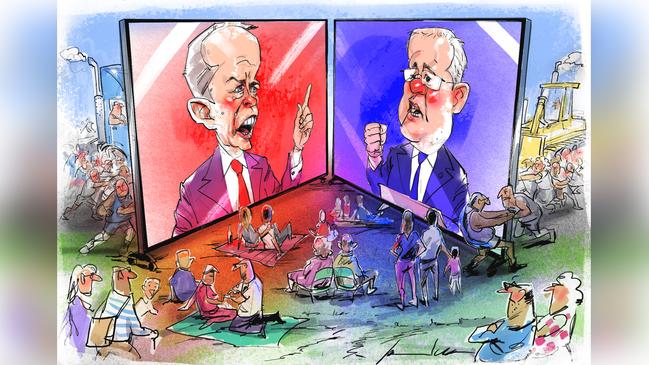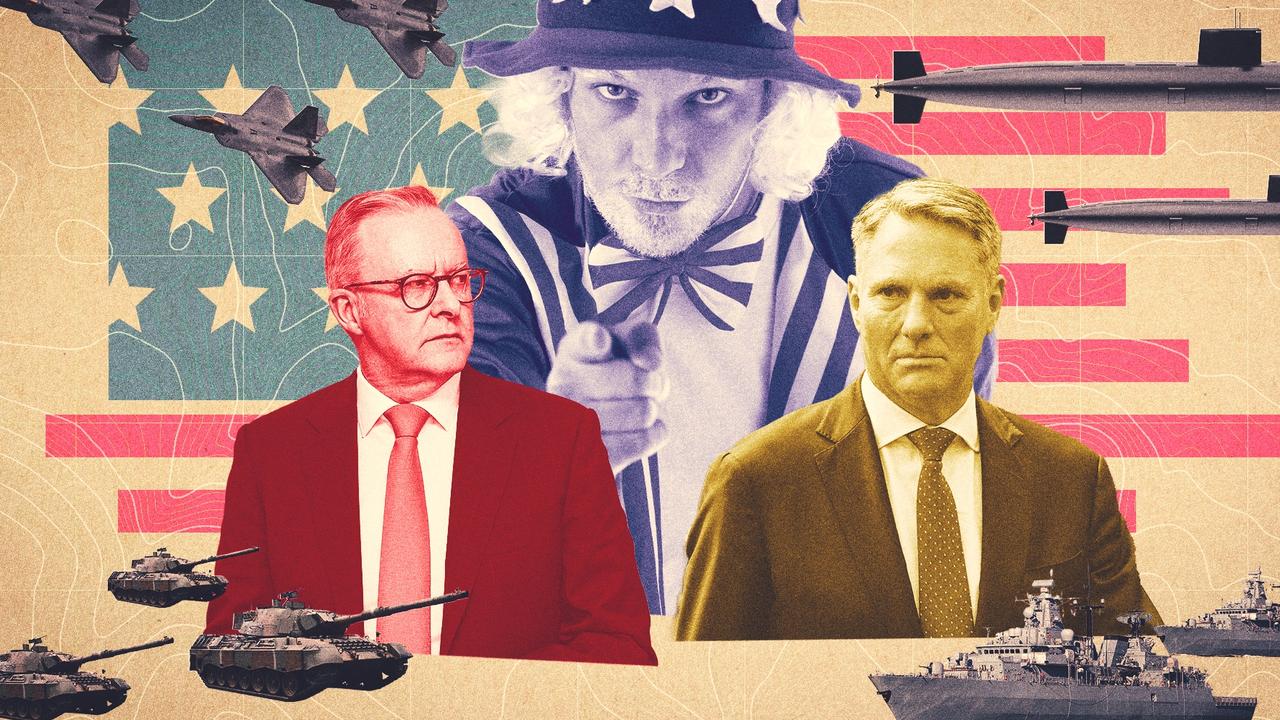
Last night’s leaders’ debate in Perth, co-hosted by The West Australian and the Seven Network, was a good start. But it was broadcast live on 7TWO, which barely attracts 5 per cent of the viewing audience. A second debate between Morrison and Shorten hosted by Sky News will take place in Brisbane on Friday night.
Election debates are important. They provide a rare opportunity for leaders to face sustained questioning about their policies and philosophy for government. Voters benefit from seeing leaders handle questions from a moderator, panel or audience. Leaders who are across their policies, answer directly and project authority boost their election prospects.
While debates are unlikely to influence an election decisively one way or another, they can be one of several factors that contribute to the outcome. For some viewers, debates can be critical in deciding their vote. If a leader fumbles an answer about their policies, or looks weak and indecisive, or appears too aggressive or dismissive, it can shake up the election campaign dramatically.
In recent years, voters have been poorly served by the major parties and the TV networks when it comes to debates. The leaders usually agree to only one or two televised debates during the campaign, and well before election day. Paul Keating and John Hewson are the only leaders to go head-to-head on prime-time TV three times during an election campaign, in 1993.
The networks no longer offer a prime-time audience on a main channel. In 2016, the debates were mind-numbingly dull. The three formats — a town hall meeting, a panel of journalists and a silly Facebook forum watched by a pitiful 120,000 voters — did not help. The best debates have been those with a single moderator who ensures a spirited contest while fact-checking answers as they are given.
The two best debates were between Keating and John Howard moderated by Ray Martin on the Nine Network in 1996. Martin was a superb moderator who ensured the two leaders engaged in a wide-ranging and free-flowing debate on the details of their respective policies. Almost 60 per cent of voters tuned in to watch.
These days, party leaders are overly scripted and rehearsed. They stick to key lines rather than engage thoughtfully with persuasive arguments. They insist on strict times for questions and answers, and usually avoid opportunities to spar directly with their opponent. In recent years, debates have become boring.
It is no wonder the audience for debates has shrunk. According to Australian Election Study data collated by Ian McAllister and Sarah Cameron in their monograph, Trends in Australian Political Opinion, 71 per cent of voters watched the Keating-Hewson debates but only 21 per cent watched the debates between Malcolm Turnbull and Shorten in 2016.
It was not always the case. The first political debate on Australian TV took place in 1958. Harold Holt and Billy McMahon represented the Coalition government; HV “Doc” Evatt and Arthur Calwell represented the Labor opposition. The fiery debate was broadcast live on the Seven Network and moderated by the editor of The Sydney Morning Herald, and former British Conservative MP Angus Maude.
Robert Menzies did not like televised debates. He also declined to participate ahead of the 1961 election. Again seated around a table for a lively debate were Holt and McMahon, who faced off against Calwell and Gough Whitlam. Menzies saw debates as risky. He thought John Kennedy was elected US president because of his superior debate performance against Richard Nixon in 1960.
Australia’s first leaders’ debate was between Bob Hawke and Andrew Peacock in 1984. For 90 minutes, they answered questions from a panel of journalists moderated by Ken Randall. Malcolm Fraser refused Hawke’s challenge to debate in 1983; Hawke refused Howard’s challenge to debate in 1987. Hawke and Peacock squared off again in 1990. Since then, debates have been a feature of every election campaign, but with waning status and influence.
It is understandable that leaders, like Menzies, are wary about debating their opponents.
According to AES data, there were three elections where debates were likely important in determining the result: Hawke v Peacock in 1990, Keating v Hewson in 1993 and Howard v Kevin Rudd in 2007. Hawke, Keating and Rudd won decisive victories and won the election.
Shorten has proposed a third debate with a panel of journalists at the National Press Club at lunchtime on May 8. The ABC and the Nine Network have offered to host debates. While Shorten is not avoiding debates, his offer is not the best time, format or location for a debate. Morrison has proposed a prime-time evening debate on the ABC next week. Shorten should accept.
Australia needs a US-style independent commission to run leaders’ debates. This would take the usual politicking out of debates and ensure they are organised well in advance. Rudd promised to set up a debate commission but did nothing. The major parties should commit to establishing a commission, perhaps run by the Australian Electoral Commission, to oversee future debates.
The major parties and the free-to-air television networks need to make election debates a higher priority than they have been in recent years. Morrison and Shorten should agree to a third debate with a single moderator on prime-time TV, with all media sharing the feed, on the Sunday before election day. Voters should demand nothing less.




With both major parties offering very different visions for Australia’s future, Scott Morrison and Bill Shorten demand maximum scrutiny as the clock winds down to election day. The best way to test the policies and examine the two leaders under pressure is in a series of head-to-head debates on prime-time television.